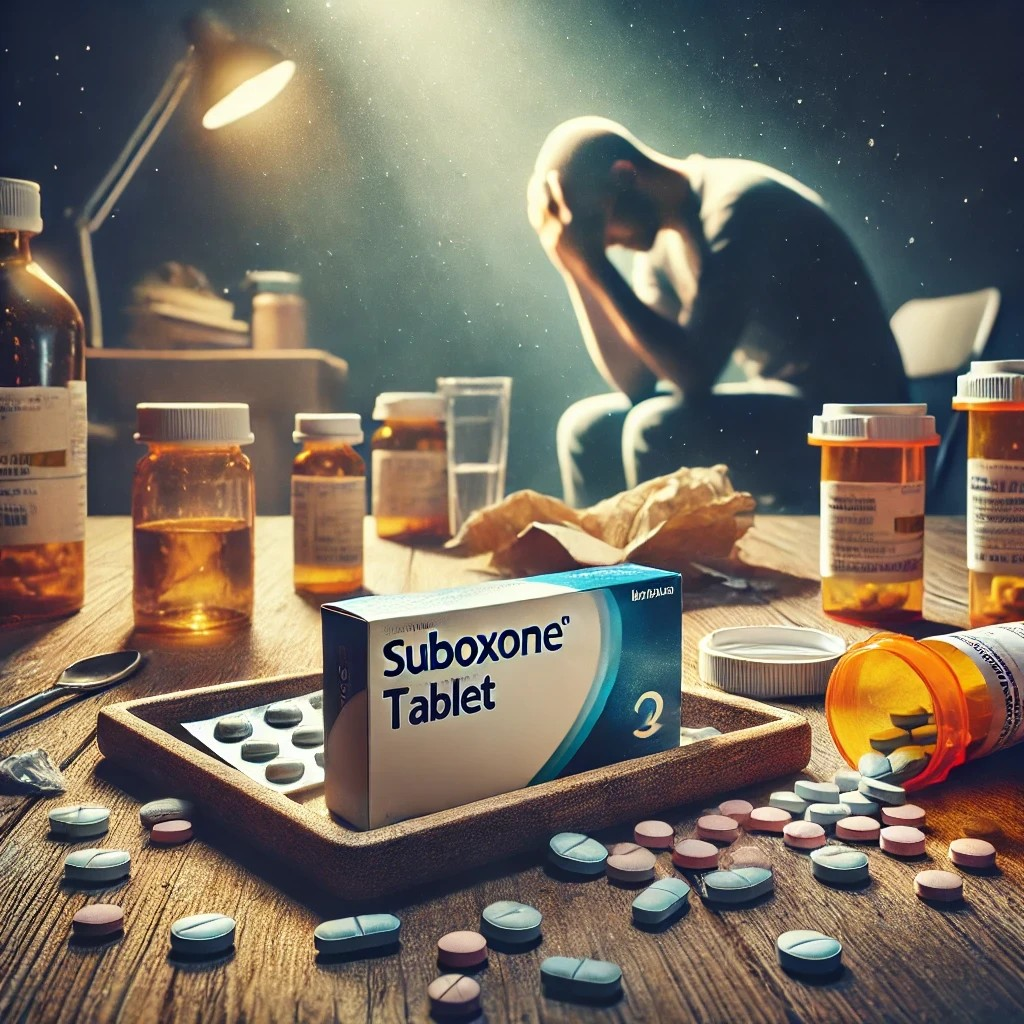The opioid crisis has caused immense suffering across the United States, mostly children, and leaving families grappling with addiction, loss, and financial strain. Suboxone, a widely prescribed medication to treat opioid use disorder, has been both a lifesaver and a point of contention. While approved by the FDA for its ability to alleviate withdrawal symptoms, the drug and its makers have recently faced growing scrutiny. Allegations have surfaced claiming that the manufacturers, including Reckitt Benckiser Group, engaged in deceptive marketing and antitrust practices, leading to lawsuits that demand accountability.
As the Justice Department intensifies investigations into the pharmaceutical industry’s role in the opioid epidemic, many patients and their families are left wondering about the safety, effectiveness, and availability of medications like Suboxone. Mass Tort America is dedicated to helping patients pursue justice, offering free nationwide support through a skilled Concierge Team that coordinates every aspect of their cases.
How Suboxone Became A Target For Legal Action
Suboxone’s rise in popularity is closely tied to its effectiveness in helping patients manage opioid addiction. The medication combines buprenorphine and naloxone, two active ingredients designed to reduce withdrawal symptoms and discourage misuse. However, its high demand also made it a lucrative product for its manufacturer, Reckitt Benckiser Group. Legal challenges allege that the company prioritized profits over patients, resorting to questionable tactics to maintain control over the market.
The lawsuits claim that Reckitt Benckiser introduced Suboxone film to extend its patent monopoly, discouraging patients and doctors from choosing generic options. This tactic allegedly forced consumers to pay higher prices, compounding the financial burden on those already struggling with addiction. Furthermore, claims have emerged that the company overstated Suboxone’s safety, downplaying risks such as dependency and potential abuse.
Investigations by the federal government suggest that these practices may have violated antitrust laws, prompting lawsuits from various states and agencies. In its defense, Reckitt Benckiser has denied the allegations, but mounting evidence could have significant repercussions for the public affairs of the company and its stakeholders.
Allegations of Deceptive Marketing Practices
A major component of the lawsuits centers around claims that Reckitt Benckiser made false claims about Suboxone’s safety and effectiveness. Critics argue that the company exaggerated the supposed benefits of Suboxone film while undermining the credibility of competing treatments. Such claims have drawn the attention of federal authorities, including the FDA and the Justice Department, which are actively investigating these allegations.
The lawsuits also highlight concerns about how Suboxone was marketed to physicians and patients. Legal filings allege that the company’s marketing strategies included misleading statements about the drug’s ability to treat opioid use disorder without significant risks. This has raised questions about the role of pharmaceutical companies in shaping public perceptions of opioid treatments.
Efforts to hold Reckitt Benckiser accountable underscore the broader issue of corporate responsibility in addressing the opioid crisis. By bringing these allegations to light, the lawsuits aim to ensure greater transparency in the pharmaceutical industry and protect patients from harm.
The Role Of The Federal Government In The Lawsuits
The involvement of the federal government in Suboxone-related lawsuits demonstrates the seriousness of the allegations. Agencies such as the Justice Department and FDA are actively pursuing investigations into Reckitt Benckiser’s practices, focusing on whether the company engaged in unlawful conduct that harmed patients.
In addition to antitrust violations, the government’s case also examines whether Reckitt Benckiser violated federal laws governing drug safety and marketing. This includes claims that the company misrepresented the risks associated with Suboxone, potentially endangering patients who relied on the drug for recovery.
Federal efforts to address these issues reflect a broader push to combat the opioid epidemic through stricter oversight of pharmaceutical companies. By holding companies accountable, the government hopes to reduce the harm caused by opioid addiction and improve access to safe, effective treatments.
The Impact On Families And Patients
For families affected by opioid addiction, the lawsuits against Suboxone’s makers represent more than just legal proceedings—they symbolize a fight for accountability and justice. Many patients who relied on Suboxone for recovery have expressed concerns about the drug’s safety and cost, citing the financial strain of paying for expensive medications.
Family members have also raised questions about whether the drug’s risks were adequately disclosed. Claims that the medication was marketed irresponsibly have left families feeling betrayed, as they trusted that Suboxone would help alleviate pain and suffering without adding to the burden of addiction.
Support services, such services such as counseling and addiction recovery programs, play a critical role in helping families navigate these challenges. However, the high cost of Suboxone and other medications has created barriers to recovery for many. These issues highlight the need for greater accountability within the pharmaceutical industry to prioritize patient well-being over profits.
Safety Concerns Surrounding Suboxone
One of the primary safety concerns raised in lawsuits is the potential for misuse and dependency associated with Suboxone. Although marketed as a safer alternative to traditional opioids, the medication carries its own risks, particularly when used improperly. Patients have reported experiencing withdrawal symptoms and other adverse effects, raising questions about whether the drug was adequately tested before being approved by the FDA.
Physicians and healthcare providers are often tasked with balancing the benefits of Suboxone against its risks. While the drug can be a powerful tool for recovery, its misuse can lead to serious consequences, including dependency. Lawsuits argue that Reckitt Benckiser should have been more transparent about these risks, providing clear information to doctors and patients alike.
The broader implications of these safety concerns extend beyond opioid drug, to public health efforts aimed at combating the opioid crisis. By ensuring that medications like Suboxone are marketed responsibly and safely, stakeholders can help restore trust in the healthcare system and improve outcomes for patients.
Key Dates In The Legal Battle
The timeline of the Suboxone lawsuits includes several critical milestones. In September 2024, new evidence emerged suggesting that Reckitt Benckiser may have intentionally misled consumers about the benefits of Suboxone film. These revelations have intensified scrutiny of the company’s practices, prompting calls for further investigations by federal agencies.
Another pivotal date is November 12, 2024, when a major court hearing is expected to address key allegations against Reckitt Benckiser. This hearing could provide significant insights into the company’s defense strategy and the potential consequences of the lawsuits. Patients and advocates across the country are closely monitoring these developments, hoping for a resolution that prioritizes accountability and safety.
As the legal battle unfolds, it serves as a reminder of the importance of transparency and accountability in the pharmaceutical industry. Companies must work to address the concerns of patients and families, ensuring that medications like Suboxone are both safe and accessible.
The Aftermath Of Reckitt Benckiser’s Legal Challenges
The lawsuits against Reckitt Benckiser could have far-reaching consequences for the pharmaceutical industry. If the allegations are proven, the company responsible may face significant financial penalties and increased regulatory oversight. These outcomes could influence how other companies approach the development and marketing of opioid treatments.
For patients and families, the aftermath of these lawsuits will likely shape their access to medications like Suboxone. Efforts to hold Reckitt Benckiser accountable may result in greater transparency and improved safety standards, benefiting those who rely on these treatments for recovery. However, the legal battle also highlights the challenges of addressing opioid addiction in a system that often prioritizes profits over patient care.
By learning from these cases, stakeholders can work toward a future where opioid treatments are safe, effective, and accessible to all who need them. This requires collaboration among pharmaceutical companies, healthcare providers, and government agencies to ensure that patient health and well-being remains the top priority.
Why Choose Mass Tort America For Your Case?
At Mass Tort America, we are committed to advocating for patients and families affected by corporate negligence. Our team has extensive experience handling complex litigation, providing the guidance general counsel and support needed to pursue justice. From gathering evidence to coordinating with experts, we ensure that every aspect of your case is handled with care.
Patients from all over the nation trust Mass Tort America to deliver results. Our dedicated Concierge Team is here to simplify the process, offering personalized support and access to valuable resources. Call us today at 800-356-4338 or visit our contact form at https://masstortamerica.com/contact/ to take the first step toward justice.


















